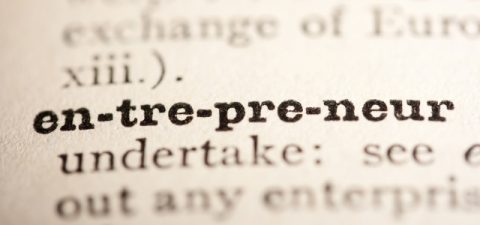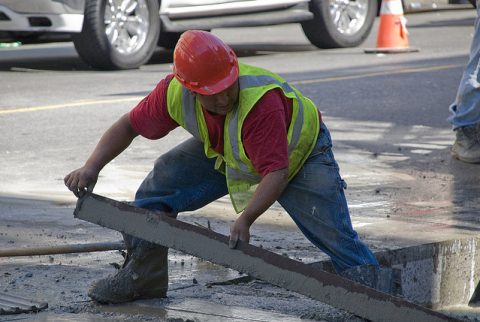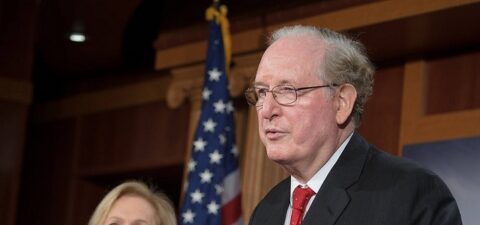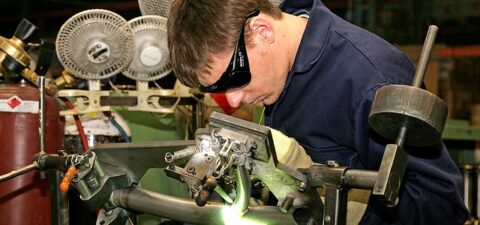Business & the Workforce

Busting the Myth of the “Job Stealing” Immigrant
Some critics of the immigration bill now winding its way through the Senate claim that it would increase unemployment among native-born workers—especially minorities—by adding more immigrants to an already tight job market. In fact, both the legalization and “future flow” provisions of the bill would empower immigrant workers to spend more, invest more, and pay more in taxes—all of which would create new jobs. Contrary to the simplistic arithmetic of immigration restrictionists, employment is not a “zero sum” game in which workers compete for some fixed number of jobs. All workers are also consumers, taxpayers, and—in many cases—entrepreneurs who engage in job-creating economic activity every day. Read More

Immigrant Entrepreneurs Grow Industries and Create Jobs
As you might suspect, immigrant entrepreneurs are key drivers in the transportation, food and building services industries. And a recent report from the Immigrant Learning Center (ILC) shines a spotlight on immigrant entrepreneurship in these industries, with a particular geographic focus on Massachusetts, New York, and Pennsylvania. Concerning the three industry areas, the ILC study – through an analysis of public data and interviews with immigrant business owners and industry representatives – finds the following: Read More

Three Ways Immigration Reform Would Make the Economy More Productive
By David Dyssegaard Kallick, Director of the Fiscal Policy Institute’s Immigration Research Initiative. A report just released by the Fiscal Policy Institute, Three Ways Immigration Reform Would Make the Economy More Productive shows that legalization of undocumented immigrants, done right, would do three things to increase economic productivity in the United States. Read More

How Immigrant Entrepreneurs Fare in the New Immigration Bill
With the Senate Judiciary Committee’s vote last week to pass S.744 on to the Senate floor, a new proposal for spurring immigrant entrepreneurship and innovation will be before Congress. Title IV, Subtitle H of the bill creates the INVEST visa (Investing in New Venture, Entrepreneurial Startups, and Technologies) for immigrant entrepreneurs. This new visa program would allow immigrant entrepreneurs to come to the United States, start businesses, and create jobs in America. There would be two types of INVEST visas. A nonimmigrant INVEST visa would be renewable provided certain initial investment, annual revenue, and job creation criteria are met within an initial three-year period. The immigrant version of the INVEST visa would have basically the same criteria just at higher thresholds. The committee also adopted an amendment that permanently authorizes the EB-5 Regional Center Program, which has created tens of thousands of American jobs and attracted over $1 billion in investments since 2006. Read More

Experts from Left and Right Agree on Economic Power of Immigration Reform
In recent years, study after study has demonstrated a simple yet economically powerful truth about broad-based immigration reform: workers with legal status earn more than workers who are unauthorized—and these extra earnings generate more tax revenue, as well as more consumer spending, which creates more jobs. As a new report from the Center for American Progress (CAP) points out, this fact implies that states with appreciable unauthorized populations stand to gain economically from immigration reform that includes a legalization program for the unauthorized. Moreover, a new open letter to Congressional leaders released by the conservative American Action Forum illustrates that it is not only liberal advocacy groups like CAP which recognize the economic potential of immigration reform. Read More

The W Visa: Why the Economy Benefits from A Robust New Worker Program
The Senate Judiciary Committee returns to its task of marking up S. 744 tomorrow, taking up, among other things, possible amendments to the W visa program for new nonimmigrant workers. This new program, blessed by both business and labor, is an effort to acknowledge the need for a more flexible system for meeting the demand for workers in certain occupations and industries that require less-skilled workers. At Tuesday’s hearing, several Senators challenged the idea that the American workforce needed to be supplemented with immigrant labor, but the evidence is overwhelming that there is both a need and an economic benefit to having a flexible and responsive program in place to bring in new workers where they are most needed. Read More

The Important Role of Immigrants in America’s Innovation Economy
This week, the U.S. Senate Committee on Commerce, Science, and Transportation weighed in on immigration reform with a hearing on the role of immigrants in America’s innovation economy. Remarks from Sens. Rockefeller (D-WV) and Thune (R-SD) noted the contributions of immigrant innovators and entrepreneurs. Immigrants in the United States were named as inventors or co-inventors on 25.6 percent of international patent applications filed from the U.S. in 2006. Furthermore, temporary workers and permanent residents made contributions to over half of the international patents filed by several large, multi-national companies. Temporary and permanent foreign-born workers represent at least 24 percent of the nation’s scientists and 47 percent of engineers with doctoral degrees. Read More

Keeping U.S. High-Skilled Temporary Worker Visa Programs Workable
When analyzing higher-skilled guest worker visa programs, such as the H-1B and L-1 programs, critics often fail to acknowledge the very different and important purposes that these programs were designed to serve, and the complicated requirements already in place to protect against abuse or exploitation. There is no denying that we can and should improve these programs and the strategies used to enforce them. However, given the well-established economic benefits of these programs, and the challenges employers face finding highly skilled workers, particularly in technical fields, it is essential that any proposed reforms not impose restrictions that may make these programs completely unworkable. Read More

High-Skilled Immigration and Entrepreneurship in the Senate’s Immigration Bill
On the road to reform, the Senate’s Border Security, Economic Opportunity, and Immigration Modernization Act contains several changes and new provisions for skilled immigration and entrepreneurship. Specifically, the bill provides balanced reforms to the H-1B nonimmigrant visa for high-skilled individuals, various provisions for highly skilled individuals through permanent employment-based immigration, and a new INVEST visa for entrepreneurs. Read More

Details Begin to Emerge on New Immigration Bill
Ahead of the expected release of a comprehensive immigration reform bill in the Senate this week, details were released outlining the broad strokes of the bill. The “Gang of Eight”—a bipartisan group of senators who have been working to develop the proposal—delayed a press conference that had been planned for today about the bill out of respect for the victims of the Boston Marathon bombing. The Senate group could announce the final measure tomorrow Read More
Make a contribution
Make a direct impact on the lives of immigrants.
